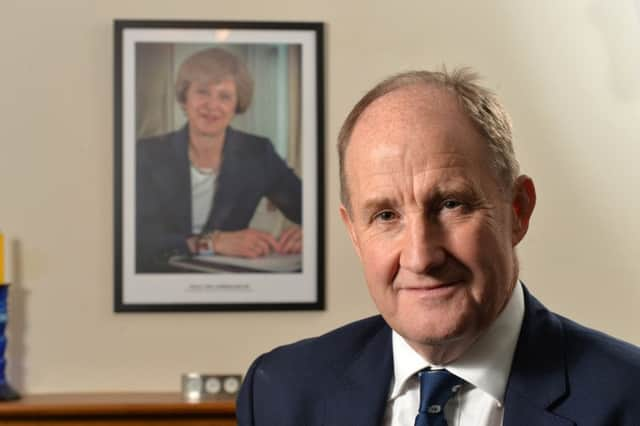Greg Wright: It’s time to get tough with the vulture funds and liberate the mortgage prisoners


They are devoted parents, loyal employees and honest taxpayers who have scrimped and saved to provide shelter and financial security for their loved ones.
They have been betrayed by an ineffective regulatory system that fails to protect consumers and businesses whose faith in the financial services sector has been destroyed by a staggering list of scandals.
Advertisement
Hide AdAdvertisement
Hide AdAs a first step towards easing their anguish, the Government should ban the practice of selling mortgage books to unregulated lenders .
Mortgage prisoners are trapped into paying higher rates of interest to their borrower because they cannot meet affordability tests, brought in after the financial crisis, despite making payments on their current, higher interest rate mortgage.
This has caused particular problems for borrowers who have found their debt sold on to unregulated private equity firms - the so-called vulture funds - that do not offer new mortgages or more affordable rates.
All Party Parliamentary Group on Fair Business Banking and Finance (APPG) has estimated that there are up to 200,000 mortgage prisoners in the UK today.
Advertisement
Hide AdAdvertisement
Hide AdThe Financial Conduct Authority is consulting on proposals to help mortgage prisoners switch providers. However, the APPG is concerned that the proposals only give lenders the option to apply for a “modified assessment “ and would not be introduced as an obligation on lenders.
The APPG said: “UK Finance launched a voluntary agreement to support mortgage prisoners to switch to an alternative product at their present lender, but this does not help the approximately 120,000 customers with inactive lenders who have no hope of improving their situation as they cannot access better rates, even though they are in the situation through no fault of their own.”
Charlie Elphicke MP has presented a Ten Minute Rule Bill Motion which would allow consumers to transfer mortgages between providers and ban the sale of mortgage debt to unregulated entities.
It would also provide extra support to small firms by preventing the foreclosure of certain business loans and establish a financial services tribunal to provide small firms with speedy access to justice.
Advertisement
Hide AdAdvertisement
Hide AdMr Elphicke told the Commons that every mortgage prisoner has struggled to meet expensive payments to keep a roof over their heads.
“Charlotte is 39 years old,’’ he said. “She and her husband live in the West Midlands. They took out a Northern Rock mortgage in 2007. In 2010 she had twins who suffer from serious disabilities: both are wheelchair bound.
“Charlotte and her husband have never missed a single mortgage payment, but they cannot remortgage because of the regulators’ affordability test. She says that with a new mortgage they could pay so much less, and afford more therapies for their sick children, rather than having to fundraise.”
“The Government should be lending a helping hand, not a tin ear. The Treasury should not be selling mortgages off to vulture funds without protection.”
Advertisement
Hide AdAdvertisement
Hide Ad“These mortgages were taken out many years ago.. well before the post-crash affordability rules and other regulatory changes came in.
“Yet these borrowers have proved their ability to pay for over a decade by making their mortgage payments. Why have a computer-driven affordability test that ignores the reality of the real world?”
Small businesses who have been bullied by the banks are also crying out for justice. Mr Elphicke’s proposals, which have been backed by Kevin Hollinrake, the co-chair of the APPG, would ban the practice of seizing on loan conditions. If a small business is paying, the lender should not be allowed to pull the plug and destroy a viable business that may help to feed many families.
Business loans above £25,000 must also be regulated to keep the banks honest.
Advertisement
Hide AdAdvertisement
Hide AdThe creation of a tough financial services tribunal remains the best way of ensuring small firms cannot be crushed by predators who believe they are among the untouchables. Failure to act will surely lead to another catastrophe.